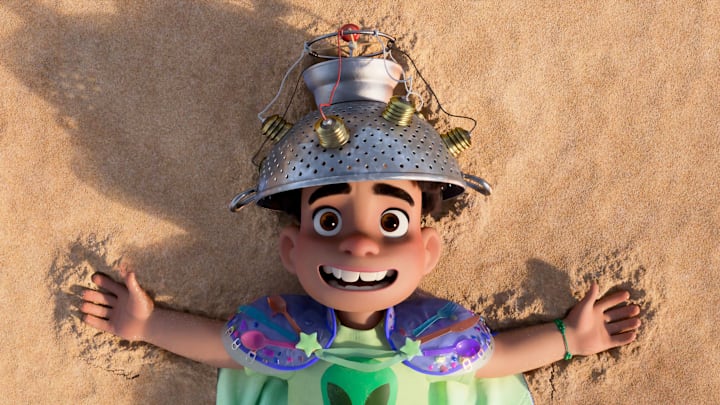By now, Pixar’s Elio is perhaps most known as a box office flop with positive critical reviews. Pixar’s official social media has already put the blame on audiences, claiming that audiences demand original films but refuse to go to theaters to see them. To be fair, it is very disheartening to see a delightful, original film receive the cold shoulder from audiences.
However, several named and unnamed Pixar employees recently contacted The Hollywood Reporter to discuss the film’s potential erasure of LGBTQ themes. If this scenario sounds familiar, the director of Disney’s live-action remake of Lilo & Stitch also suggested that a beloved character’s cross-dressing was forced out of his version of the film. While neither Disney nor Pixar is primarily known for their daring risks in LGBTQ representation, this continued trend may suggest more blatant forms of censorship are at play.
This controversy begins with Elio’s original director, Adrian Molina. Molina’s version of the film incorporated some details that were personal to him as an openly gay film director. Whether or not Molina intended for Elio’s character to fit into any particular queer identity, it does seem as though his original characterization is lost. Elio’s interest in environmentalism and fashion, as well as pictures of a potential male crush in his bedroom, are entirely missing from the new version of the film.
Molina ultimately left the film and was replaced by co-directors Madeline Sharafian and Domee Shi. From here, accounts from Pixar insiders seem to vary as to how the issue was handled behind the scenes.
Sarah Ligatich, a member of an internal group called PixPRIDE, claimed that many creatives at Pixar stepped down after the new directors showed their version of the film. Their departure is likely because, as one anonymous former Pixar animator said, “It was pretty clear through the production of the first version of the film that [studio leaders] were constantly sanding down these moments in the film that alluded to Elio’s sexuality of being queer.” However, a different anonymous Pixar source denied that the new version of the film had caused a mass exodus of talent.
Either way, anonymous former Pixar animators seem to have resounding opinions that Elio lacks something unique from its original form. One anonymous former animator states, “Suddenly, you remove this big, key piece, which is all about identity, and Elio just becomes about totally nothing.”
This brings us back to Pixar’s claim that the audience demands original stories but then refuses to see them. While this might be true, there is also value in the alternative viewpoint from the anonymous animators. Could it also be that a film that is in many ways original but lacking any clear sense of identity also keeps audiences away? Can audiences tell when a film is missing something essential to the soul of its story?
None of this is to say that Elio is a bad film (it definitely isn’t!), or that its faults are solely due to directors Sharafian and Shi. Perhaps the film would never have been a smash box office hit. However, perhaps there’s more to a film’s financial loss than a lazy audience. Perhaps keeping important themes and identity in a film matters more to audiences than Hollywood thinks.
More from FlickSided:
